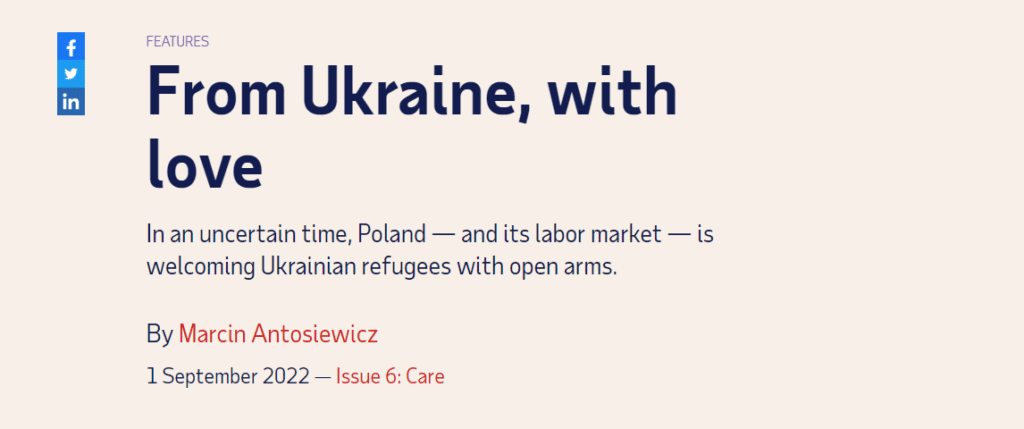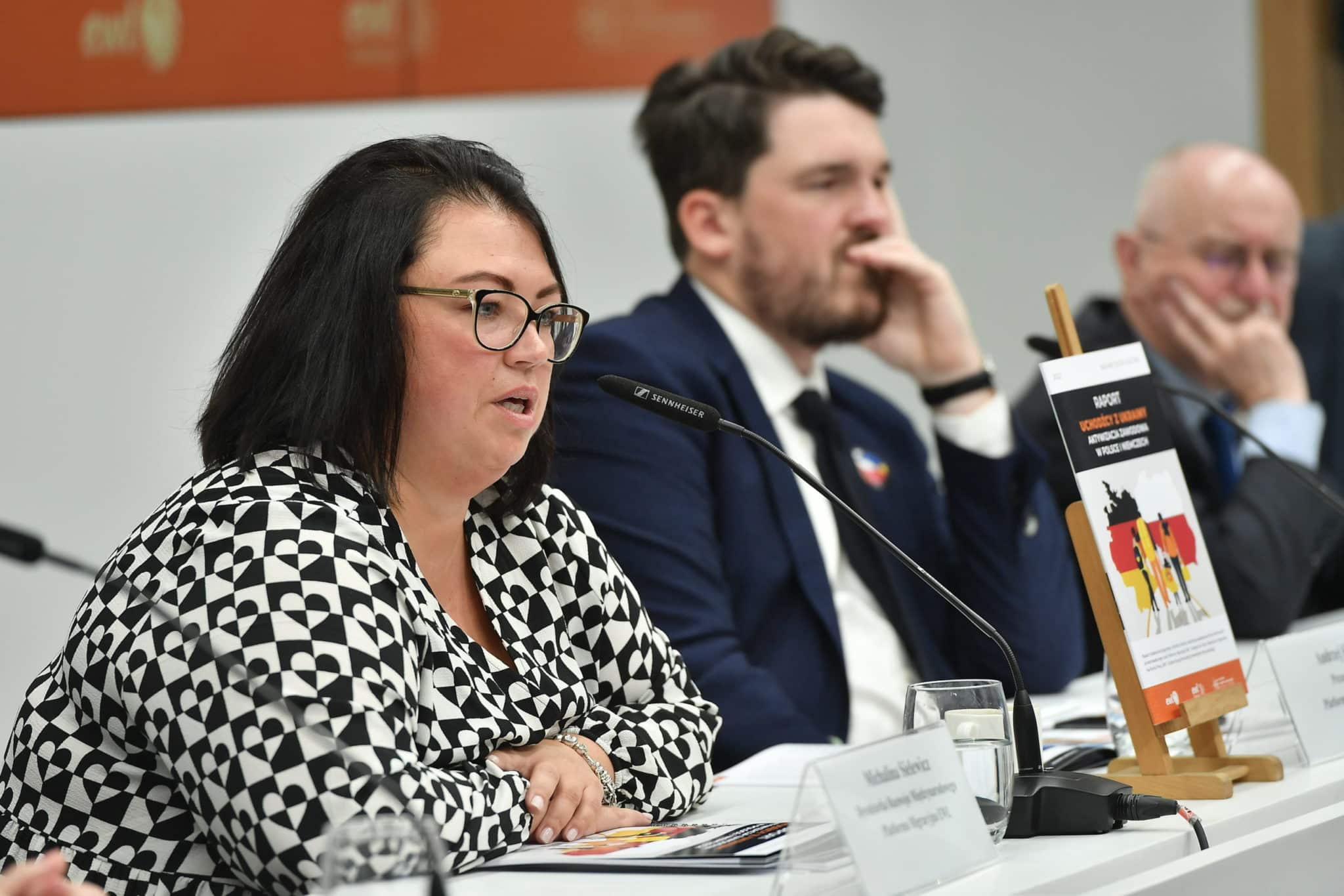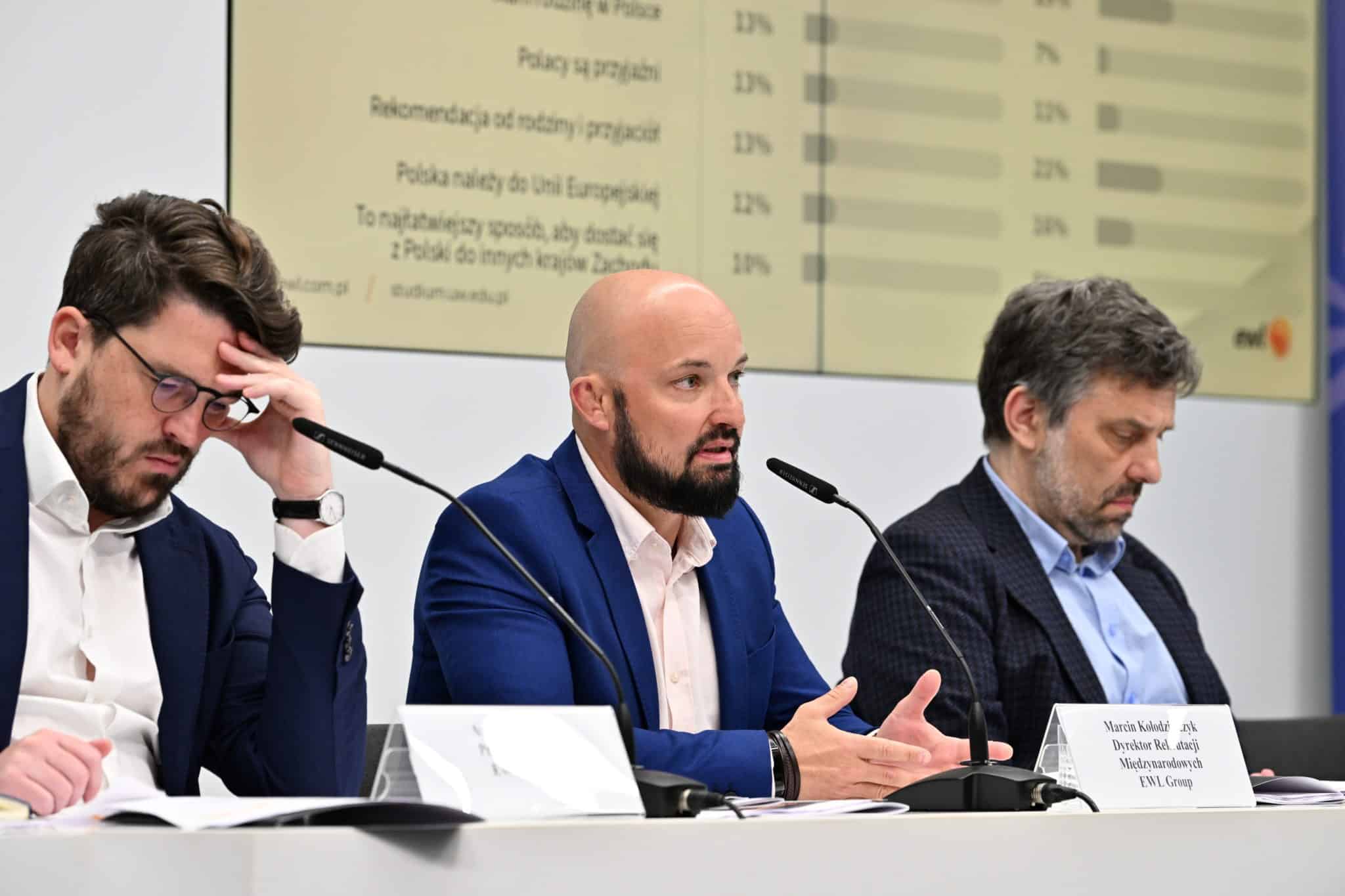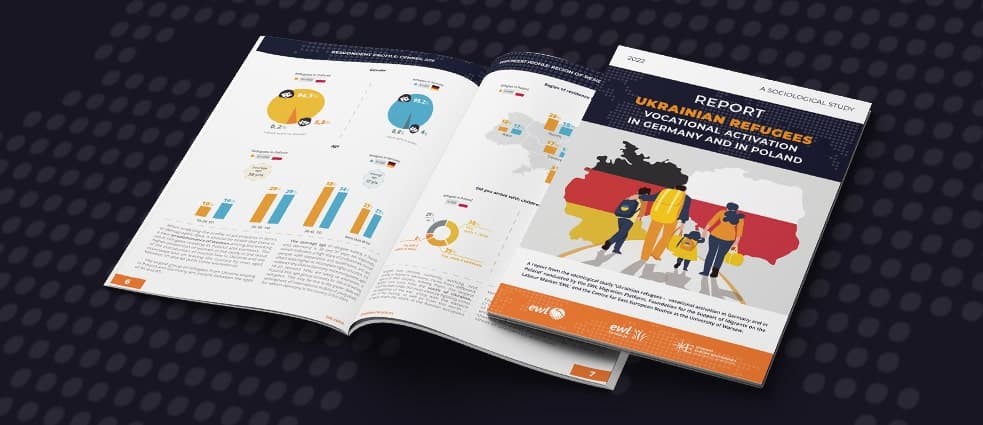In an uncertain time, Poland — and its labor market — is welcoming Ukrainian refugees with open arms. (…)
In the first weeks after the war broke out, just 30% of Ukrainian refugees intended to stay in Poland for more than a year, according to research by EWL. Six months into the war, about 50% of refugees intend to stay in Poland for more than a year.
This is partly because of the war dragging on, but certainly also because of the measures Poland has taken to integrate the refugees, such as speeding the process to receive work permits.
“Previously, it used to take a month for formalities, but now it is possible to get everything done in one day,” says Michalina Sielewicz, international development director at EWL. Poland’s implementation of the EU directive for Ukrainian war refugees gives them the same labor rights as Poles. The total number of legally employed Ukrainians in Poland in August was 770,000, according to the Ministry of Labor and Social Policy.
The unemployment rate in Poland in June 2022 was just 2.5%, the second lowest in the European Union, according to Eurostat. Poland has faced labor shortages for almost a decade, and the recent exodus of Ukrainian men sharpened the situation. “With the current situation on the labor market, refugees can choose from offers,” Sielewicz says. EWL currently employs 12,000 workers, more than half of whom are refugees. (…)
The past six months have shown that language skills are more important than a diploma for Ukrainian refugees in the Polish labor market. In addition, the job centers also organize language courses, 25 hours a week. Refugees receive around 2,000 zloty (PLN, $430) from the state for attending them.
“From the point of view of the Polish labor market, although we are aware of possible threats, we also see opportunities arising from the inflow of Ukrainian citizens to our labor market. We have been facing staff shortages for years, and the employment of foreigners, at least in part, bridges these shortages,” the Ministry of Labor and Social Policy said in a statement to the ReThink Quarterly. “There was still the greatest shortage of hands in manual labor occupations, but highly qualified professionals such as accountants, teachers and programmers are also in demand.”
But not all of the jobs are in Warsaw.
“We have a lot of jobs in places that are not a first choice, which are outside the big cities. That’s where the manufacturing and logistics companies are located,” says Sielewicz. However, refugees do not want to move out of the big cities. Nor do they want to commute; few Ukrainian women have a driving license, Sielewicz says.





